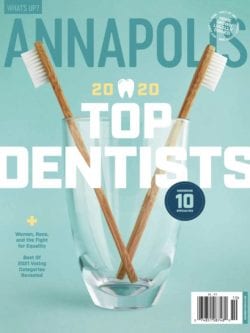Dental Bonding An Overview
If you want to improve your smile, we offer various services in our Annapolis dentist office, including tooth bonding. Beautiful, natural-looking teeth are easily attainable with cosmetic tooth bonding. Our cosmetic dentists can improve your teeth’ shape, color, and symmetry in a single visit. And tooth bonding is very affordable compared to alternative treatments like porcelain veneers.
What is Tooth Bonding
For this procedure, a bio-compatible, tooth-colored resin is bonded to the tooth for virtually indistinguishable restoration. Tooth bonding can be used as a dental veneer or a tooth filling to improve cosmetic and functional dental concerns.
Dental bonding can be utilized in many ways. The procedure can improve the appearance of a defect found on the surface of a tooth or replace tooth structure that has chipped or broken off. Dentists can also repair damage caused by tooth decay by bonding with resin.
This technique can resurface a tooth’s entire front side to improve its appearance. If damage to the teeth is more significant or a permanent result is desired, we may recommend porcelain veneers or dental crowns.
Dental Bonding What to Expect
Dental Bonding Process
Dental bonding is a minimally invasive procedure and can usually be completed in a single visit to our Annapolis dentist office. One of our cosmetic dentists will begin by preparing the teeth that will be bonded. This involves removing a minimal amount of surface structure to allow for the composite material to be sculpted into place.
Your cosmetic dentist will directly apply a tooth-colored resin and sculpt it into the desired shape for a natural result. After it is sculpted onto the tooth, it is cured with a special UV light.
With proper dental care, your results can last for many years. However, it is important to understand that dental bonding is not a permanent solution. It will last for 5 to 10 years with proper care and maintenance. Resin is not as stain-resistant as porcelain, so it is important to avoid tobacco, dark foods, and beverages to maintain the whiteness of the restoration.
Tooth bonding can be reapplied or touched up as needed during regular visits to our dental office.
Dental bonding requires the precision and artistic ability of a skilled cosmetic dentist like Dr. Albert Lee since the work is done freehand without molds or impressions. Dr. Lee is an American Academy of Cosmetic Dentistry (AACD) member.
Is Tooth Bonding the Best for You?
Our dentists will consult with you to ensure you choose the cosmetic dental treatment that works best for you. Compared with other cosmetic dentistry procedures, dental bonding can be relatively inexpensive and is usually a “completed in one visit” type of dental procedure.
One disadvantage of dental bonding is that it tends to stain over time and generally isn’t as lasting or durable as other cosmetic dentistry options.
However, and one more point in the plus column, if dental bonding does chip or break, it can usually be easily patched or repaired.
Caring for Bonded Teeth
While dental bonding is a temporary restoration, there’s more longevity when you take care of it properly. To start, ensure you’re brushing and flossing at least twice daily. Bonding material isn’t susceptible to tooth decay like natural teeth, but that doesn’t mean you can stop brushing. You must keep the tooth structure under it healthy so that the bonding material has a solid foundation. Take extra care to brush at the edges of the bonding material
Continue regular dental visits as well. We can keep an eye on the bonding material and ensure that it’s not wearing down. If we see signs of wear or breakage, we may recommend replacement. You risk chipping or wearing down the material if you clench and grind your teeth at night due to excessive force. Wearing a nightguard can protect your teeth from subconscious grinding.
Certain lifestyle habits and foods can damage the bonding material, too. Avoid opening packages with your teeth, chewing on pens, or biting your nails. Don’t bite directly down on hard or crunchy foods with the bonded teeth, either. Sticky and chewy foods should also be avoided as much as possible.
Schedule a Consultation
Searching for a cosmetic dentistry office in the Severna Park, MD, and Annapolis, MD area? Schedule a consultation with Lee, Bonfiglio, Vesely & Associates to discuss your dental health, cosmetic goals, and budget concerns before recommending the treatment options that will suit you best.

